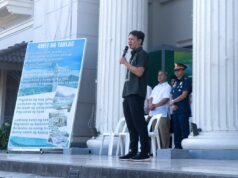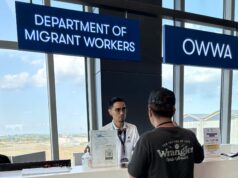EO 64 has recently placed CIAC back into the control, ownership and management of DOTC.
Having all these past years been passed like a pingpong ball between CDC, BCDA and DOTC under various organizational setups, it is just timely to wonder whether this latest development is final and is the concrete step and commitment of the Aquino administration to finally making CIAC- DMIA the premiere international airport of the country.
At least the focus and involvement seem to be there, with the DOTC and DOT secretaries together with the heads of NAIA and the CAAP being placed ex oficio in the new CIAC before.
However, this happened before and the appointed national officials did not give their attention and instead just sent their representatives to the board meetings and oversight of CIAC concerns.
The talk about CIAC being now positioned and developed as the new and modern premiere international airport has always been around.
But it is more hype than reality. Basically, there seems to be no strong political commitment. It is clear nobody wants to lead and assume the responsibility of devolving the aviation activity away from NAIA and over to Clark.
Imagine how all these vested interests in the aviation industry and the commercial investments in land and infrastructure of the NAIA area will feel and vote.
Never mind all of the limitations and unsolvable constraints of the NAIA airport and area. Never mind all the dysfunctions and inefficiencies.
We wait for the accidents to happen. We are very good in reaction management. Look at how great we usually respond to all these disasters. But we rarely strategize and forecast proactively.
For one basic and very important consideration, the money for CIAC has never been there. After inheriting the airport area and structures from the Americans, CIAC had to make do with periodic contributions from BCDA and CDC to take out the lahar and put the airport into operational condition.
The area was an “unpolished jewel” according to one international airport expert.
These Americans really knew their colonization basics.
Then CIAC had to scrap for its own funds from its marginal operations and from borrowings which had to be supported by CDC, at one time having CIAC within its structure.
CIAC did not for a very long time even have its own accurate and realistic financial statements, being assigned a laughable equity of only PHP 20 million, not even the value of one fire truck.
The success in attracting budget flights and patronage by international passengers to destinations in South Asian cities as well as the advent of Korean travellers and investors brought CIAC breathing space in its financial requirements.
It was able to address some basic capex requirements through creative uses and sourcing of funds. It expanded the terminal capacity through borrowings, increases in terminal and security fees and a few commercial locators leases. However, these were miserably inadequate for the grand vision.
CIAC managed both sought and was approached by many investment proposals both domestic and foreign.There were the Chinese, Malaysians, Kuwaitis and the usual Koreans.
There were many preliminaries with local big names like R. Romero, FF Cruz, Ayala, SMC, MVP and even newly formed- for= the purpose consortia with the usual political patronage.
CIAC had to contend with the intricacies of the joint venture law and procedures which were then being used for the first time. And in the end after almost two years of negotiations and processing, nothing happened.
The new administration came in and it had its own priorities, learning and moving in to do.
Meanwhile, the CIAC top management became embroiled in its own side but certainly distracting problems. Apart from wrong financial policies in its charging of rates (the virtual joint venture lease with Berthaphil which did not go through the process and the full grant of airport fees incentives which would not even recover variable costs to Air Asia Philippines of Tony Boy Cojuangco, among others), CIAC could not even pay up to date for a long time its share to the employees’ provident fund and still has not settled its CBA negotiations after one year.
CIAC president Chichos Luciano has been charged in the Ombudsman by Canada mayor and president of the Pampanga Mayors League for selling still usable structures as scrap without due procedure and supposedly donating these to the Aetas who allegedly denied this.
Now recently, Luciano has been charged by CIAC director and vice president for operations Rey Catacutan for allowing the illegal, unrecorded and without due procedure allegedly several kilometres of cable wire in the airport runway area.
The charge is being heard by a CIAC board committee and Luciano is on leave.
Luciano continues to hang on. Despite his attachment to scrap, he still manages to issue press hype that CIAC will invest PHP 14 billion to build the new DMIA airport.
Chichos never knew arithmetic. I wonder if he knows how many millions make up a billion. And he is supposed to get this amount from the private sector partnership.
I continue to wonder if he knows what the public-private sector joint venture process is all about. I guess he can continue to host lunches for his factotums in CIAC and CDC and ask them to believe. Luciano must really be lucky.
A basic issue involving EO 64 is the additional area granted to CIAC in order to build a logistic area and aviation related investments around the airport complex.
This is intended to synchronize like the Changi model the investments’ requirements and access to airport services.
It will also provide commercial income needed to support airport development and operations which are highly capital intensive. What happened?
It took a long time to make the IRR by the negotiations between CIAC and CDC with the referee BCDA. What is now in effect?
It seems that the purpose and intended benefits have bogged down in a morass of vested turf and control interests.
Therefore, with all of these issues and still others, with EO 64, again quo vadis CIAC?




